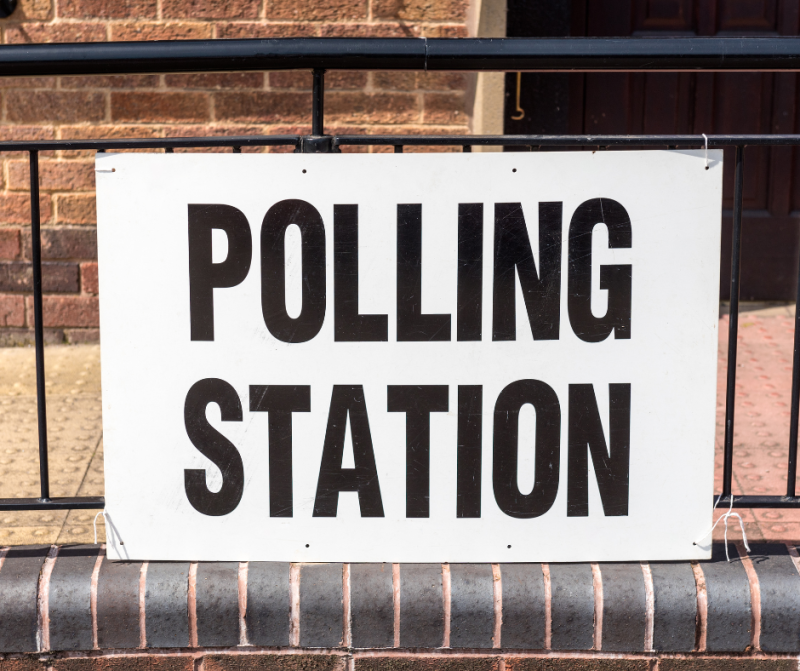The upcoming 2024 general election in the UK is shaping up to be one of the most critical in recent memory, particularly about the issue of immigration, which stands out as this election’s most hotly debated topic.
Each party’s policies regarding immigration will undoubtedly play a significant role in voters’ final decisions and, ultimately, the country’s future.
This blog aims to explore the potential changes in UK immigration policies post-election and their implications for residents and businesses.
The Current State of UK Immigration Policies
Overview
The UK’s immigration policies have been a focal point of political debate for many years. Currently, the system is governed by a points-based immigration system introduced in January 2021. This system prioritises skills and talents over other factors like family ties.
This system was designed to attract highly skilled workers while reducing overall immigration numbers.
Recent Changes
There have been several recent changes in UK immigration laws:
- Minimum Salary Increases: Roles that are not on a national pay scale will need to meet a general salary threshold of £29,000. New applications and those looking to extend their visas will have to ensure they meet this minimum requirement.
- Care Workers and Dependents: As of March 2024, care workers and senior care workers immigrating to the UK will be unable to bring dependents on their visas.
- Student Visas: There have been a few changes to the student visa route, such as most students being unable to bring family members to the UK. There are now also tougher rules on how financially stable students wishing to study in the UK should be.
As these policies are relatively new, it is hard to say just how much of an impact they will have. Home Office data for the beginning of the year shows that immigration has begun to fall for those groups affected by the new regulations; however, the true extent of the changes is yet to be seen.
This, of course, will be further affected by the results of the upcoming 2024 UK general election. Each party has a different stance on immigration, so the trajectory of how immigration will be handled in the UK depends heavily on which party eventually prevails in the election.

Key Parties and Their Stances on Immigration
Conservative Party
The Conservative Party has traditionally taken a more stringent stance on immigration. They tend to focus on reducing overall numbers and tightening border controls.
Their policies for this election are no different. The conservatives have proposed an annual cap on work and family migration and are seeking to raise immigration application fees, as well as potentially continue raising the minimum salary thresholds for some groups.
Furthermore, if they were to succeed in the July elections, they would quickly begin to enact the Rwanda policy (removing certain people who have entered the UK without authorization, including asylum seekers, and sending them to Rwanda where they would be able to claim asylum instead).
Labour Party
Labour’s approach to immigration is generally more inclusive. They have stated that they would like to review the effects of some of the new immigration policies, such as the impact of raising the Skilled Worker salary threshold, though some of these changes would remain the same.
The Labour Party has said that if they win the election, they will cancel the Rwanda policy. Instead, they will invest this money into establishing a new ‘Border Security Command’ to prosecute gangs operating small boat routes and to generally enhance cooperation with the EU in regards to security.
While Labour would not go through with the Rwanda Policy, they have explored the option of processing asylum claims overseas (potentially by signing a returns deal with the EU, though this isn’t a solidified plan yet).
Reform UK
Reform UK plans to take major action if they are elected on the 4th, stating that they plan on completely freezing all non-essential immigration.
Farage has vowed to take Britain out of the European Convention on Human Rights so illegal migrants and asylum seekers could be removed and processed overseas.
He has also promised to impose higher national insurance on overseas workers.
Liberal Democrats
The Liberal Democrats have made it clear that they wish to build a fair and effective immigration system that aims to treat people with dignity and respect.
They aim to scrap the 2023 Illegal Migration Act and cancel the Rwanda Policy. They also seek to lift the ban preventing asylum seekers from working.
Green Party
Like the Liberal Democrats, the Green Party aims to create a humane and fair immigration system.
They seek to ensure families can remain together and, in a major change, dismantle the Home Office.

Implications for Immigrants, Residents, and Businesses
For UK residents, both immigrants and citizens, these changes could mean a variety of new opportunities and challenges.
Suppose parties such as the Conservatives or Reform UK are elected. In that case, their stricter policies on immigration might make it harder for individuals and families to migrate to the UK. It would also be much more difficult for asylum seekers to be granted asylum in the UK.
On the other hand, if parties such as Labour or the Liberal Democrats are elected, their more relaxed approach to immigration could re-open doors for skilled workers and students.
Likewise, businesses, particularly those relying on international talent, will need to stay agile. Stricter immigration controls could exacerbate labour shortages, while more inclusive policies could provide a welcome influx of skilled workers.
Tann Law’s Perspective and Advice
At Tann Law, we specialise in immigration law and have been closely monitoring these developments. Over the next few months, we’ll be focusing on providing accurate advice and aid to our clients.
For residents and immigrants concerned about potential changes, staying informed is crucial. Regularly check government announcements and consult with legal experts to understand your options. This particularly applies to those preparing to begin the migration process to the UK.
Likewise, businesses should prepare for new regulations by reviewing their hiring practices and ensuring compliance with existing laws. Partnering with immigration experts can provide valuable insights and ease the transition.
Conclusion
The UK 2024 general election will undoubtedly bring significant changes to UK immigration policies. Staying informed and prepared is essential for both residents and businesses. At Tann Law, we are committed to helping you navigate these changes effectively. To see our full selection of immigration services, visit our Immigration Service page.
For personalised advice and support, Contact Tann Law Solicitors Today.
—
By staying engaged and proactive, you can ensure that you are well-prepared for whatever changes lie ahead.

